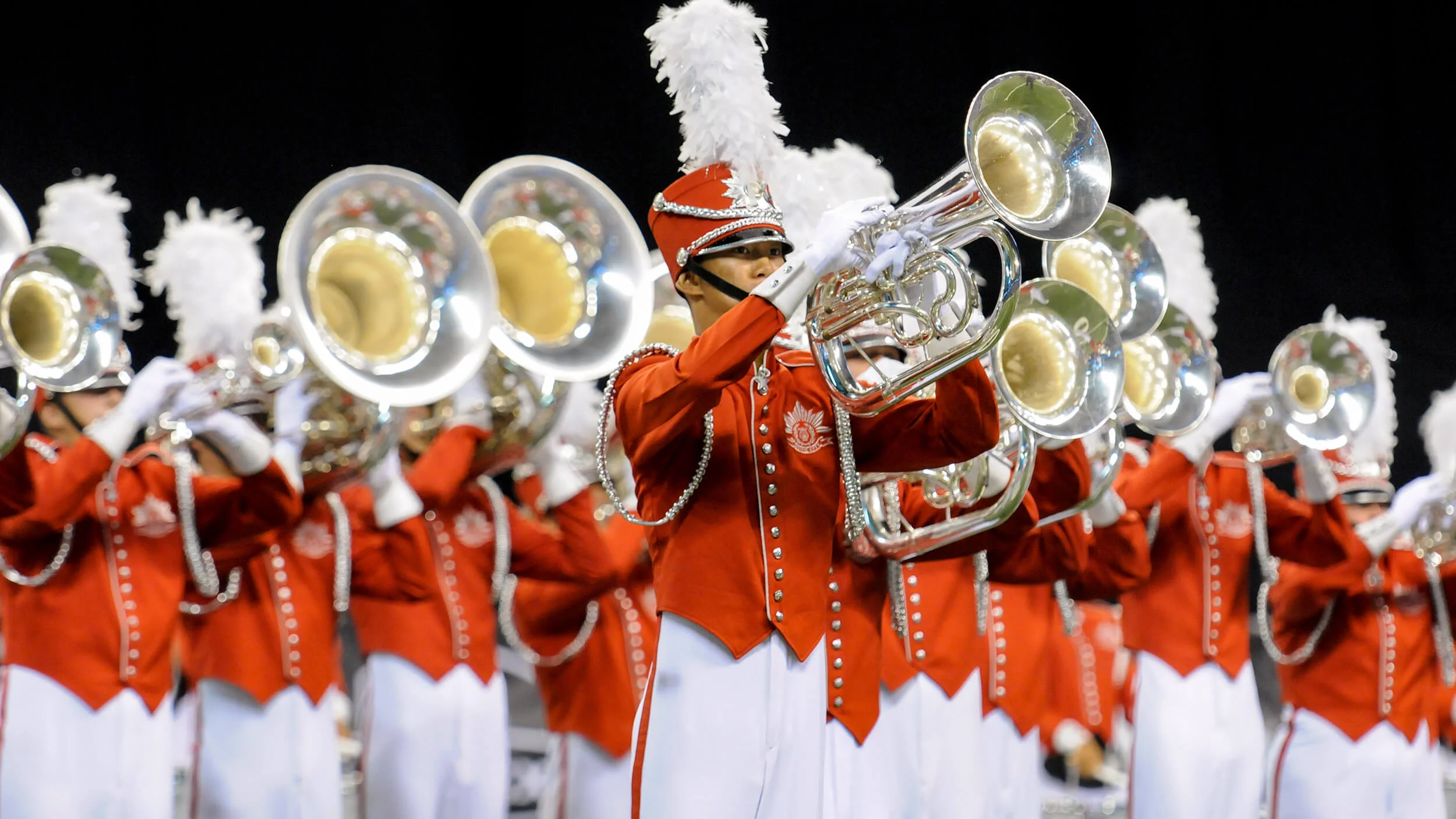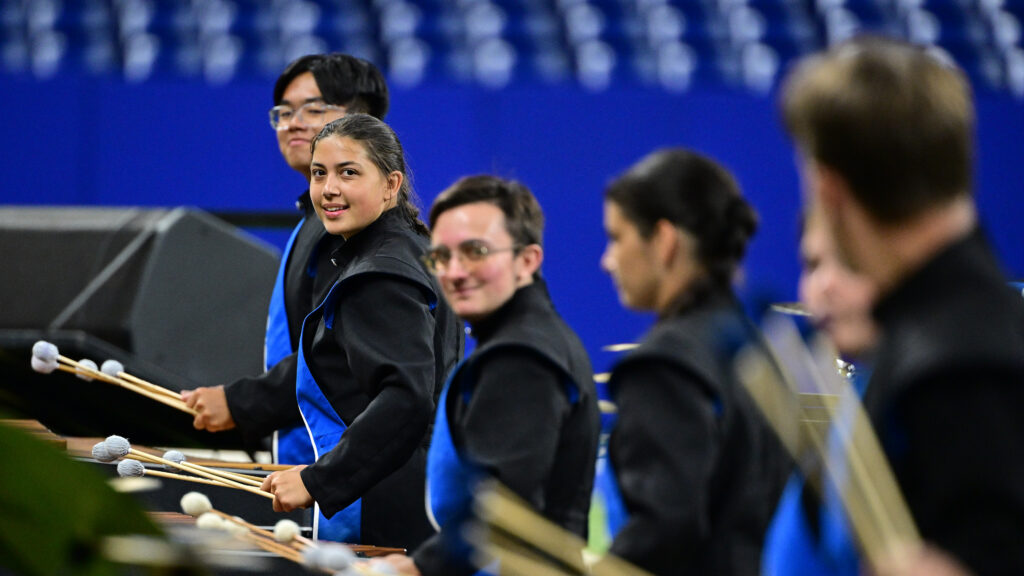Oregon Crusaders won the Open Class DCI World Championship title in 2012 with their “Dreaming in Color” production. It was the corps’ first win since taking the Division III Championship in 2004.
Oregon took top caption honors for everything except percussion, which went to the second-place Blue Devils B for their show about a river journey.
Vanguard Cadets finished just a tenth under Blue Devils B, while the best color guard caption award went to the fourth-place Spartans.
Music City finished in ninth place with “Phantoms of the Grand Ole Opera,” meshing music from Andrew Lloyd Webber’s “Phantom of the Opera” with some of the most beloved tunes from the Grand Ole Opry, the famed institution residing in the corps’ hometown of Nashville.
The corps’ 2012 production followed a love story between a member of the color guard’s all-male rifle line and a member of the all-female saber section. The staff wanted to play country music and feature a storyline about two people falling in love, a show that would be easy for the audience to follow. But the staff also wanted to explore Andrew Lloyd Webber’s “Phantom of the Opera,” the 1986 musical that won a Tony after opening in 1988 and has since become the longest running show in Broadway history.
The show opened with the fanfare from “Phantom of the Opera,” a song from early in the musical sung by chorus girl Christine and the Phantom, the musical’s masked character who lived in the bowels of the Paris Opéra House. The female members of the color guard dressed in feminine attire akin to Christine while the male performers wore black tuxes and facemasks similar to those worn by the Phantom in the musical.

After stating the theme once, the corps segued into an exotic mode of “Ring of Fire,” written about the transformative power of falling in love. June Carter and Merle Kilgore co-wrote the song in 1962, one year before it became Johnny Cash’s most famous song, and five years before Cash and Carter got married. The two songs existed within one another for the remainder of the opener.
Country music star Patsy Cline sang Alan Block and Donn Hecht’s “Walkin’ After Midnight” in 1957 on “Arthur Godfrey’s Talent Scouts,” a competition show decided by the results of an applause meter. At the time, Cline was a relative unknown, but she became an overnight sensation after the reaction from Godfrey’s audience broke the applause meter. Music City blended the song with “Music of the Night” from the middle of the musical’s Act I, sung by the Phantom as a love song to Christine after he took her into his hidden sanctuary under the opera house.
Music City merged another Cline song, “Sweet Dreams,” with “All I Ask of You,” the final song from the end of the musical’s first act. Don Gibson, who is more famous for penning the Ray Charles hit, “I Can’t Stop Loving You,” wrote the 1955 country ballad for Cline, who recorded it shortly before her 1963 death in a plane crash. This segment featured the two main characters performing a tender dance with one another.
“Point of No Return” came from near the end of the musical, when Christine ripped off the Phantom’s mask to reveal his deformed face to a shocked theatrical audience. Performed as an intense and angry drum solo, the field production played off the conflict between the saber-spinning female guard members and the rifle-spinning male guard members. Combined with Hank Williams’ “Your Cheatin’ Heart,” written in 1952 and one of country music’s most popular standards, the percussion feature ended with both sections acrimoniously facing each other.
Though Tammy Wynette and her producer Billy Sherill co-wrote “Stand By Your Man” in 1968 in just 15 minutes, it became her most successful song and instantly turned her into a superstar. The song, fused with various “Phantom of the Opera” melodies from earlier in the show, turned the prior angst and discord into a positive affirmation of the love between the headline characters.
They concluded the show in an impassioned embrace, Christine lifted high by the Phantom with her arm outstretched to the heavens.

Michael Boo was a member of the Cavaliers from 1975-1977. He has written about the drum corps activity for more than 35 years and serves as a staff writer for various Drum Corps International projects. Boo has written for numerous other publications and has published an honors-winning book on the history of figure skating. As an accomplished composer, Boo holds a bachelor's degree in music education and a master's degree in music theory and composition. He resides in Chesterton, Indiana.





